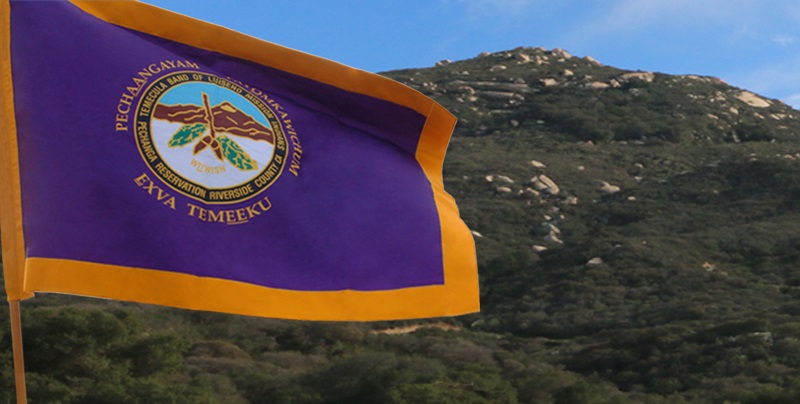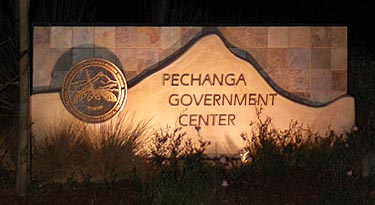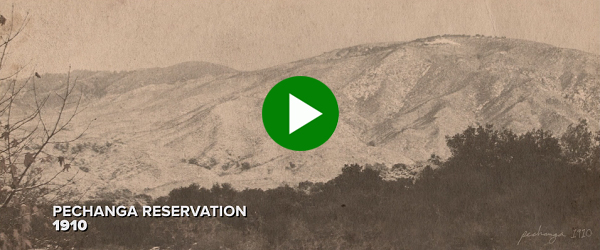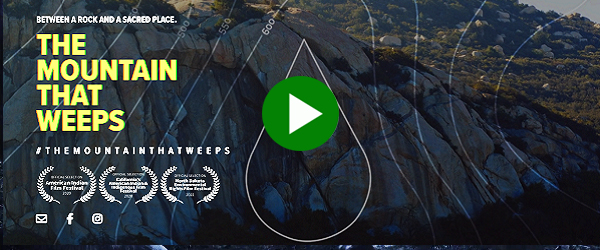
Pechanga Gaming Commission
In 2002, the Pechanga Band spent nearly $18 million on gaming regulation and activity.
The Broad Scope of Tribal Gaming Regulation
Tribal Government gaming is subject to more stringent regulation and security controls, and at more levels, than any other type of gaming in the United States. Indian nations, like the Pechanga Band, that own and operate reservation casinos, have established their own gaming commissions and developed tribal police forces, security and surveillance departments and, in some instances, court systems, to develop and enforce proper regulations and internal controls and to combat crime.
The vital need for stringent regulation was determined well before the U.S. Government established operational standards. A decade ago, the California-Nevada Indian Gaming Association (now the California Nations Indian Gaming Association) promulgated comprehensive "California Indian Gaming Internal Control Guidelines" covering the whole range of casino activities ranging from the integrity of the games to related operations and personnel. These regulations met or exceeded standards adopted by states, such as Nevada and New Jersey.
The Pechanga Band, like many tribes, has invested heavily in high tech surveillance equipment and professional personnel to operate them. Because Class III-type gaming is a recently emerging industry, only new "state-of-the-art" electronic equipment and machines are in use. At the Pechanga Resort & Casino, the surveillance system is on par with any in the gaming industry and exceeds standards employed by commercial gaming operations. Tribal governments, by far, have more personnel regulating tribal casinos than gaming enterprises in other government jurisdictions.
No one has a greater interest in protecting the integrity of tribal government gaming on the Pechanga Reservation than the tribe itself. This is the most precious economic resource the tribe has had since before the Spanish arrived. As a result, the Pechanga Tribal Government, like other governments, is the frontline regulator of gaming within its territory, placing the highest priority on protecting tribal assets, insuring the integrity of gaming and assuring a safe, secure and healthful recreational and work environment for customers and employees.
In 2002, during the first year of operation of the PRC, the Pechanga Band spent in excess of $17.6 million to cover gaming regulation and related activities, including:
- $2.4 million to operate the independent Pechanga Gaming Commission and direct regulatory activities
- $185,000 for the Internal Audit Department
- $9.5 million for Surveillance Department operations, regulatory payments to the state and federal governments
- $5.3 million for the Public Safety Department.including a staff of more than 160 persons, including public safety officers, detectives, investigators, plus paramedics and emergency medical technicians
Tribal government gaming is subject to more stringent regulation and security controls, and at more levels than any other type of gaming in the United States.
Just as the State of California regulates the state lottery and horse racing and exercises regulatory oversight with local governments over card rooms and charitable bingo and related games, following federal law, the Pechanga Tribal Government and other Indian nations have established industry standards and internal controls.
Federal Law Restricts How Gaming Proceeds Are Used
Not only does federal law govern gaming regulation, it also restricts the use of tribal gaming revenues to specific functions. As mandated by Section 11 (a)(2)(B) of the Indian Gaming Regulatory Act (IGRA), net revenues from tribal government gaming may be used only:
- To fund tribal government operations or programs.
- To provide for the general welfare of the Native American tribe and its members (Indian governmental services and programs).
- To promote tribal economic development.
- For charitable causes.
- To help fund operations of local governments.
Tribes accomplish these goals through decisions of democratically elected officials, just as a city council does in a municipality. Since IGRA allows only the tribal governments to enter into gaming — not individuals — tribal governments determine short- and long-range goals and plans for allocating the proceeds.
Like state governments, tribal governments use gaming revenues as required by IGRA — for law enforcement, gaming regulation, education, economic development, tribal courts and infrastructure and property improvement. Gaming profits fund tribal social service programs, scholarships, health and dental care, new roads, new sewer and water systems, adequate housing, chemical dependency treatment programs and senior care.






